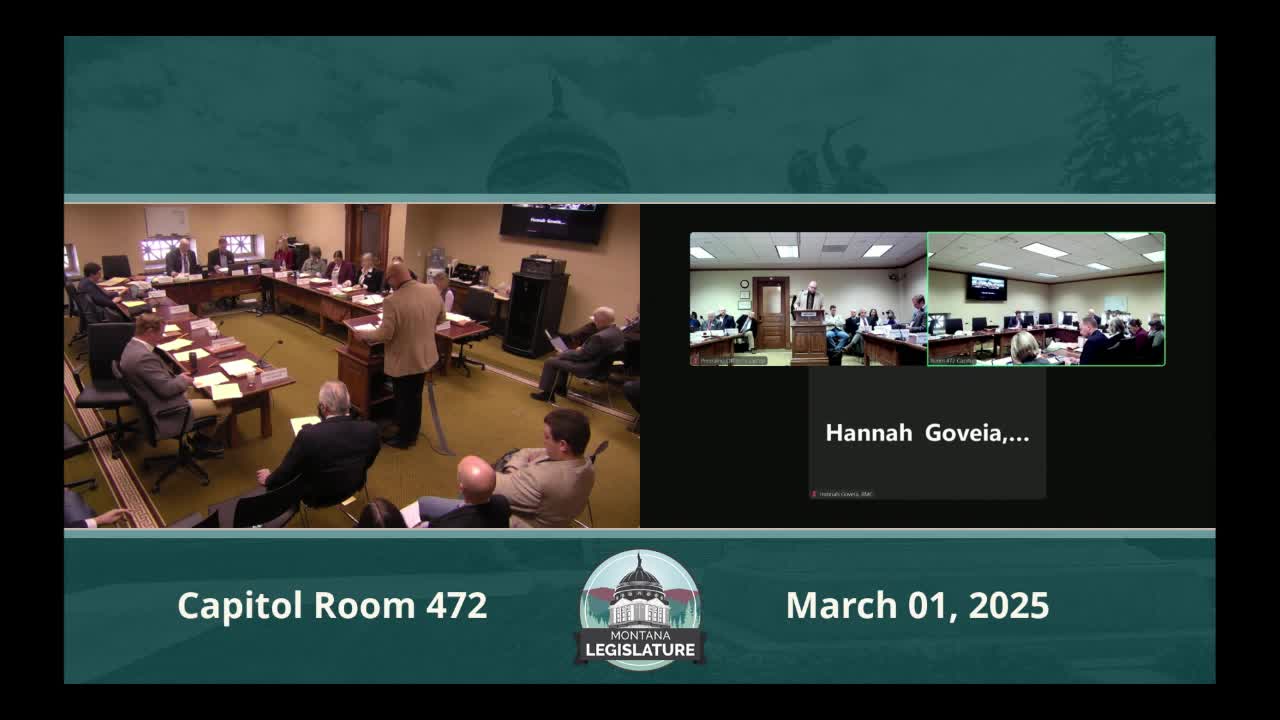Bill would let state marry mining permits to property, use eminent domain for successor operators
Get AI-powered insights, summaries, and transcripts
Subscribe
Summary
House Bill 717 would let regulators transfer revoked mining permits to successor operators by giving the state a pathway to combine permits with property and, if necessary, use eminent domain to enable reclamation or restart operations; proponents said the tool protects taxpayers and communities, opponents raised due‑process and lien concerns.
Representative John Fitzpatrick, House District 76, opened the hearing on House Bill 717 and said the bill helps DEQ transfer mining permits and operations away from bad actors to successor operators who can reclaim or restart mines.
Proponents including Matt Vincent (representing the Montana Mining Association), Terry Koons (Jefferson County Treasurer), and George Harris (executive director, Montana Coal Council) told the committee the statute already allows DEQ to transfer a revoked permit when a successor posts bond but that a transferred permit is worthless if the successor cannot access or control the underlying property. Vincent said HB 717 creates a pathway to “marry the permit with the property,” and—within existing eminent‑domain law—provides valuation and compensation to property owners so a successor operator could post bond and assume obligations without leaving taxpayers liable.
Jefferson County Treasurer Terry Koons told the committee her county has struggled for about 14 years with a stalled mine and said the bill would be “a tool in the toolbox” in cases where existing remedies have not succeeded. Several committee members asked questions about liens, leased property, bond shortfalls and whether the tool would force counties to absorb cleanup costs.
Sonya Nowakowski, director of the Department of Environmental Quality, testified as an informational witness that DEQ currently can exercise eminent domain through an established process for reclamation. Nowakowski said if a bond has been forfeited, DEQ can hold those funds while seeking a successor; if a successor operator assumes the operation, the successor would be responsible for making the bond whole (the department used an illustrative example in which a required bond of $50,000,000 and $25,000,000 in forfeited funds would leave the successor responsible for the remaining $25,000,000).
Committee members asked how often the authority would be necessary; Nowakowski said one mine is currently in this position. Sponsor Fitzpatrick framed Montana Tunnels Mine in Jefferson County as the factual problem motivating the bill and described how a state condemnation could be structured so an operator with cash would buy the property from the state after valuation in an eminent‑domain proceeding.
Proponents urged a do‑pass recommendation. No committee vote on HB 717 is recorded in the transcript.
